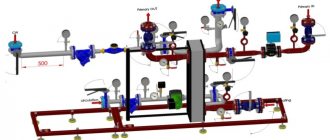Improvement objects
The management of housing and communal services is also involved in the improvement of roads, sidewalks in populated areas, as well as bridges. It is also responsible for lighting streets and buildings. This institution also clears them of debris and snow.
In total, more than 50,000 enterprises operate within its framework, and approximately 4,000,000 people work there. Although the volume of services and products provided by housing and communal services management systems is constantly increasing, many enterprises are officially recognized as unprofitable. All companies included in the structure are considered legal entities.
For this reason, they are always subject to many demands that are associated with securing the schedule. They are largely determined by the presence of various divisions in the structure and the number of houses under management.
The institution is headed by the director of the management company. He is responsible for its efficient operation. In the largest companies he also has deputies, heads of individual sections. They perform the same functions as the main manager. But their powers extend to individual groups of houses. Each group has its own control room and emergency services.
Blocked houses and apartment buildings
And one more nuance. Is there a difference between an MFB and a block structure home? The latter includes an object with a height of no more than 3 floors. I must consist of at least 10 blocks.
What is a block? The block is a separate part of the house intended for occupancy by one family only. With other units they can only communicate only with the general wall. It has access to the common part, but also has its own plot.
Agree, in some ways it looks like a residential building. However, an MPB and an apartment building are different dwellings. However, the Housing Code does not consider such houses as a separate type. For this reason, many consider them to be BCH. However, it should be remembered that apartments and blocks are completely different living spaces.
Main areas of activity
The most important area is communication with homeowners and supervision to ensure that all labor safety rules are observed. The district's housing and communal services also monitor the activities of employees carrying out repairs of buildings and roads, and constantly interact with official bodies. The responsibilities of each employee are specified in proper instructions. Each category has its own. We also always have our own staffing schedule. It lists all tariff rates and salaries.
Technical control
The most important activity of management companies is technical control over the condition of premises. Houses are serviced, complaints and requests for certain services are registered. The quality of the services provided is also monitored, relevant documentation is developed and maintained.
The staff of the housing and communal services structure has many different positions. There are those that are necessarily present in any farm if the services provided are of high quality. One of these mandatory employees is the dispatcher.
Social protection of the population
Government resolutions annually adopt new documents in the field of organizing the activities of housing and communal services. The main attention is paid to social protection of the population, which is manifested in the provision of benefits and subsidies when paying for utility services. Thus, the main actions are aimed at carrying out the following activities:
- a subsidy guarantee calculated on the principles of individuality (in practice, this is deciphered by displaying the basic requirements for real estate objects, as well as the financial condition of residents);
- prevention of poor quality performance of entrusted responsibilities for maintaining utility systems;
- unauthorized disconnection of services;
- increase in tariffs.
If there were significant violations on the part of a particular body in the performance of duties, then residents have the right to file a complaint against the actions of the official. You can involve a lawyer in the procedure to help protect your interests.
Dispatcher
Dispatchers are responsible for receiving applications from residents under the management of the management company. They also transfer them to the structural divisions of public utilities. Dispatchers are required to advise residents on issues of interest to them, confirm the fulfillment of requests, and monitor the operating schedule of the heat and power facilities. They also forward requests to the emergency service. The dispatcher is responsible for failure to fulfill the duties specified in the job description.
Electricians
The most important category of employees available on the staff of public utilities are electricians. They are the ones who deal with all kinds of problems in electrical networks. They carry out repairs and service equipment, which provides stable electricity in residential buildings. Electricians detect illegal connections to the network and prevent all kinds of emergency situations. They enter all information, including activities at the request of residents, into special journals.
Electricians are responsible for violations of laws related to electrical networks that will be present on their shift.
Financing
When understanding the structure of the institution, it is necessary to take into account that at the moment all relations between residents and these enterprises are on a commercial basis. All residents promptly pay for the services provided to utility service companies and facilities, for water, gas, and so on. Repair work and other activities specified in contracts are also subject to mandatory payment.
Services provided by the Ministry of Housing and Communal Services are divided into mandatory and optional. For the first category, payment is made every month. These include direct housing maintenance - lamp replacement, roof repairs. The second category includes new elements. And residents decide for themselves whether they will order such services.
Tariffication
Receipt of utility services by apartment owners requires mandatory mutual payment. But today the problem of collecting payments from citizens is associated with unreasonable tariffs. Thus, accounting of consumed resources occurs on the basis of accepted standards, which may differ significantly from the services actually used. In addition, citizens who pay fixed amounts without taking into account the services used consider it their responsibility to spend more than was paid.
This leads to the fact that commercial organizations that are service providers incur additional expenses that are not justified by the needs of citizens. Thus, according to recent changes in legislation, in order to reduce tariffs, a decision was made to force the installation of meters for water, gas and electricity. This is a single option for maintaining low utility costs while maintaining quality of work.
Financing
In all cases, the housing and communal services structure includes a financial department. It is headed by a financial director or accountant. Depending on the size of the site, economists may also work here. All these specialists calculate the volume of resources consumed and determine the total cost of the services provided. They also handle the transfer of documentation to the tax authorities.
The role of this headquarters in the structure of housing and communal services cannot be overestimated. It is entrusted with a large number of functions. Thanks to the correct calculations, companies make a profit, and residents remain satisfied with the services.
Legal department
Not a single housing and communal services structure can do without legal support. Often, legal tasks are transferred by management companies to third-party companies. If there is a legal department, it deals with the preparation of contracts and develops their projects in a variety of areas. In addition, the legal department is tasked with handling claims. It is its specialists who review residents’ complaints and prepare responses to them and appeals. Ensuring that the documents of the Ministry of Housing and Communal Services and the employees of this department comply with the norms of the law, as well.
Sometimes it is called legal.
Office work
Since the document flow in such institutions is always very large, the importance of proper documentation also remains high. For this reason, professional secretaries, clerks, clerks, administrators and other types of managers work here.
Regardless of how this position is named in a particular institution, the specialist will register all incoming documents and draw up outgoing papers. They will also fill out the archive, conduct business correspondence, and make frequent telephone conversations. In cases where the housing and communal services do not need a large staff of employees, all these functions can be handled by dispatchers and passport officers.
In any area of activity in which housing and communal services are involved - in transport, electricity supply, sewage supply - applications often come from residents. In this case, the acceptance of the application is always registered. A report on the actions taken is also written, protocols are formed.
As a rule, a separate journal is intended to record such information. There are strict requirements for its design, including exactly how it should be stitched.
To make paperwork easier, it is important to take preliminary measures to prepare documentation layouts. For example, service employees usually use ready-made forms and report forms.
Management companies in the housing and communal services sector: general information
To begin with, it is worth clarifying what a management company is or, as it is more correctly called, a management organization. This is an enterprise created to ensure proper sanitary and technical maintenance and repair of property in apartment buildings (MKD).
The main goal of such an enterprise is to maintain the property in the apartment building in proper condition and ensure its use in accordance with its intended purpose.
A utility company is just one of the possible forms of managing the property of an apartment building. The law does not oblige citizens to use its services - the involvement of a management company to manage a specific house is carried out by decision of the general meeting of owners.
From an organizational point of view, the management company is only an intermediary between the meeting of owners of residential premises and the performers of maintenance work.
The terms of the contract concluded with the management company contain a list of what the employees of this organization do in a particular house. Homeowners delegate to her a certain amount of functions, for the performance of which the management company receives financial compensation at approved tariffs.
It should be noted that the management company does not exercise all of its powers regarding the maintenance of common property independently. And yet it is the management organization, as follows from paragraph 2.3 of Art. 161 (ZhK RF), acts before apartment owners as a single performer of all work and services and is responsible to residents for the proper performance of functions for managing the common property of a multi-storey building.
History of the creation of management organizations
The beginning of the 30s of the twentieth century is considered the first period when management companies appeared in the housing and communal services sector of Russia. Initially, these were housing partnerships, after which they became housing-rental cooperative partnerships, which were a form of self-organization of owners and tenants of residential premises.
In the mid-40s, these forms of management were abolished, and the functions of managing the housing stock were transferred to local executive committees.
As the public administration system developed, special enterprises for managing housing and communal services began to be created - well-known housing and communal services offices, and management of the housing and communal services enterprise continued to be carried out by executive committees and local councils.
This form of organizing property management of apartment buildings was quite effective, so it fully existed until the mid-2000s.
With the collapse of the USSR and the country's transition to a market economy, maintenance services for multi-storey buildings could only be effectively provided on a commercial basis.
Taking into account such characteristics as profitability, in 2005 in Russia it became possible to create private management organizations, most of which were formed on the basis of liquidated housing offices.
Types of management companies
From the point of view of the functions they perform, management organizations operating in Russia are usually divided into 3 types:
- direct managers, that is, those who carry out only management, and attract contractors to ensure proper technical and sanitary maintenance;
- hybrid management companies are the most common type of organization on the market, which is engaged not only in management, but is also responsible for the proper maintenance and repair of apartment building property, and also ensures the provision of utilities;
- operational - enterprises that carry out their functions for the maintenance and repair of apartment buildings as contractors under a contract. Typically, such a management company is hired by another management organization or another association of owners that manages the apartment building.
Regional management companies
In order to expand the territorial coverage of services in the housing and communal services sector in the Russian Federation, not only local management organizations, but also management companies of a regional and even all-Russian scale can be created. The advantage of such enterprises lies in their capabilities:
- large material, technical and resource base;
- wide staff;
- financing to solve supply problems.
Large capital allows the creation of true utility networks that can provide management services throughout the country. A striking example is the largest management company in the Russian Federation, Peak-Comfort, represented in 19 regions. Thanks to such an organization, regional management companies solve the tasks assigned to them much better and more efficiently.
How does a management company differ from a service organization?
To get a complete answer to the question of how a management company differs from a service organization, it is necessary to understand the degree of participation of a particular enterprise in the maintenance of the common property of apartment buildings. Thus, the management company performs the function of a kind of information and operational center for solving absolutely all everyday problems that residents may have in relation to their common property.
Routine repair of engineering systems, yard cleaning, elimination of emergency situations - all these and many other functions, according to the law, are assigned to the management company.
The service organization is not involved in management. She is attracted as a contractor, performer of specific work under a contract, by the one who is directly involved in management: the HOA, management company or the residents themselves directly.
Consequently, the service organization is responsible only for the implementation of those activities that are entrusted to it by the contract.
Resident Relations Department
An organization of this kind is unthinkable without a department for working with residents. Otherwise called the passport office. Specialists issue it and change passports for the population. In addition, they process registration for citizens at a specific place of residence, issue certificates, and extracts from house books. The passport office is subordinate to both the management company and the Main Department of Migration Affairs of the Ministry of Internal Affairs. The final structure will depend on how many specific functions the service performs. For the most part, there are three areas in housing and communal services - technical, financial and legal.
General structure
So, the standard structure of an institution includes: water supply and sewerage facilities, street cleaning, bathhouses, and swimming facilities. This group is called sanitary enterprises.
The next group is transport institutions that are responsible for the operation of buses, subways, trams and water transport in a populated area.
Electricity supply and street lighting enterprises are included in the next group. This includes thermal power plants and power plants. This category also includes gas housing and communal services.
There are also institutions responsible for the external improvement of settlements. They are responsible for water supply and sewerage services, prevention of landslides and other types of emergency situations related to water supply. They are engaged in maintaining the optimal condition of roads and bridges.
Public utilities also include hotels, building inventory, funeral service enterprises, and crematoriums. Another area of activity is the maintenance of residential premises, to which the above communications are carried out.
Composition of housing and communal services
The housing and communal complex (HCS) of Russia is a diversified national economic complex, including more than 25 sub-sectors and over 70 types of economic activity.
The following sectors of the housing and communal services complex are distinguished:
1. Housing. It includes residential and non-residential buildings, as well as organizations servicing them (operating, carrying out construction and repair work, etc.). The housing sector includes housing, non-residential buildings, buildings of public organizations and social offices, and companies that service and operate them.
All residential premises constitute the urban housing stock. In this case, the form of ownership of them does not matter. These can be apartment buildings, private houses, special-purpose buildings (dormitories, shelter hotels, boarding houses for different categories of citizens), apartments and other premises intended for human habitation. As the well-being of citizens improves, they become more demanding of their living conditions and the general condition of their home. This determines the change in the structure of the urban housing stock.
2. Engineering support for settlements. The engineering infrastructure of the housing and communal services complex includes the supply of utilities to citizens (hot and cold water, heat, gas, electricity). This component of the housing and communal services complex is the most complex. Engineering must be organized at a very high level in order to be able to uninterruptedly supply the population with water, heat, electricity and gas. This requires timely repair of utilities (including preventive), cleaning work, and ensuring the effective functioning of emergency services. In many regions of our country, it is a problem to prepare utility networks for the cold season.
Water supply and sanitation. Water (drinking water, intended for use for household purposes and production) must meet certain requirements. If there is only one water supply system in a settlement, it must meet drinking water in all respects. Depending on the activity profile and capacity of enterprises, their water needs are calculated. Water supply can be provided from open or underground sources. Water intake facilities include: structures that collect water, systems for its purification and preparation, pumping stations and pipelines through which water is delivered to the population.
Heat supply. The purpose of the system is to provide citizens with hot water and heat rooms in the winter. Hot water consumption is characterized by greater uniformity than heat consumption, since in summer there is no need for heating. How long the heating season lasts depends on the climate zone in which the locality is located.
Elements of the heat supply system: forward and reverse heating networks, pumping stations (necessary for pumping), heat distributors.
Gas supply. Domestic gas supply systems are available almost everywhere. Gas can be supplied through pipes from the main pipelines. In addition, liquefied gas can be supplied to gas distribution stations located in neighborhoods. Residents of private houses use gas in cylinders.
Electricity supply. Centralized regional and interregional power systems are used to supply cities with electricity. Electrical energy is generated at thermal, hydraulic and nuclear power plants, which can be located anywhere. The electricity supply system consists of electrical networks (main and intra-block), transformers, distribution points and other structures.
3. City-wide utilities. This includes systems for the improvement and maintenance of urban areas (road construction management, street lighting, sanitary measures, collection, removal and processing of solid waste, city greening), as well as baths, laundries, hotels, funeral companies, etc.
The production specifics of the activities of housing and communal services enterprises are as follows:
— the purpose of the activities of municipal housing and communal services enterprises is to meet the needs of the population for the services provided, to constantly improve the level of service and quality of services. The purpose of commercial enterprises in the housing and communal services sector is to make a profit;
— the products of housing and communal services enterprises, as a rule, do not have a material character and act in the form of a service. For example, energy supply services consist of the transmission of energy for the purpose of energy supply;
— variable operating mode in accordance with service consumption schedules. The consumption of services by housing and communal services enterprises has a pronounced unevenness both by seasons of the year and by hours of the day (peak hours), and the provision of services must be coordinated with these processes
The infrastructure of the housing and communal complex and the housing stock are under the control of government authorities. In the regions of the Russian Federation, departments, committees and ministries of housing and communal services are created, which are included in the management structure of housing and communal services. They draw up their own regulatory documents regulating the transformations being carried out, while the regulatory framework developed at the federal level is taken as a basis. Decisions made at the regional level on the management of public utilities are advisory in nature for municipal authorities. At the same time, state-owned enterprises operating in the regions serve the housing and communal services of municipalities.
In the Russian Federation, there are 16,499 management companies and 32,337 homeowners' associations or housing cooperatives or other specialized consumer cooperatives operating 722,792 apartment buildings with a total area of 2,530,905,583 square meters. m., as well as more than 9,700 resource supply organizations.
[flat_ab id=”11"]
The Law of the Russian Federation “On the Fundamentals of Federal Housing Policy” is considered to be the beginning of the reform of the Russian housing and communal services. Since 1992 The Government of the Russian Federation has adopted more than 230 legislative and regulatory legal acts ensuring property rights in the housing sector and housing and communal services construction. The concept of long-term socio-economic development of the Russian Federation for the period until 2021 defines a reduction in the energy intensity of GDP by 2021 by no less than 40% compared to the level of 2007. According to the Energy Strategy of Russia, by 2030 it is planned to increase by more than 2 times reduction in the specific energy intensity of GDP. The specific energy intensity of GDP is more than 2 times, the specific energy intensity of GDP is no less than 1.6 times.
Technique
Normal activities of housing and communal services would be impossible without appropriate technology. After all, these services are entrusted with the task of maintaining roads in suitable condition at any time of the year. They ensure uninterrupted supply of water, gas, and energy to residential premises. Garbage is removed by the same institutions, which means that without their effective work, cities would literally get stuck in it.
For these purposes, any housing and communal services fleet contains special garbage trucks, water systems, hydraulic systems, and brushes. You can't do street cleaning without bulldozers-loaders. They are used in almost all cities of Russia due to their relatively low prices and reliability in use. For example, DZ-133 is widespread. It has both a bucket and a blade.
Snow blowers are popular and can handle even large-scale debris. They throw the fallen snow to the sides or load it into a separate machine.
Among the housing and communal services equipment in Russia, street sweepers are also a must. Different models are purchased, their work is carried out according to two different concepts. If the machine is vacuum, it has its own vortex system. During its operation, pollutants are lifted from the surface itself and then transferred to working bunkers.
Household waste is often loaded and transported using a domestic machine, model KO-427. Garbage is loaded into small containers and unloaded using a special ejector plate.
KamAZ trucks with pressing plates are also often used. They operate on the principle of a dump truck. In this case, the mechanism allows regulation of the engine speed. Thanks to this, pressing is carried out efficiently.
Sewage work is considered a very delicate area in the activities of housing and communal services using equipment. They are performed using vacuum machines. For this purpose, both foreign MOROs and Russian KOs are used. The machines also carry out sewer cleaning work.
Attachments allow you to repair and restore water supply systems. To effectively clean the pipes from greasy deposits, a transverse nozzle is used. It is also important to use special nozzles and pumps. They sometimes need to pump out water from wells or settling tanks. The most important point is the proper selection of brushes, because thanks to them the operation of the equipment becomes effective.
Since Russia is located in the northern territories, equipment is often used here to combat snow drifts. These are snow plows. As a rule, each manufacturer’s equipment that performs the same task differs significantly in the ideas implemented and the operating technologies themselves.
Objects and innovations
Housing and communal services facilities include directly residential premises of a certain area, hotels, not including tourist ones, hostels, swimming pools, beaches. This also includes water, gas and electricity supply facilities. Sports palaces are also considered objects.
It is noteworthy that at the moment, the housing and communal services sector mostly uses systems that have long been outdated. There is no talk of automation on them. At the same time, the development of automatic systems is actively underway, and their implementation is only a matter of time. So, at the moment, the introduction of modern ways for dispatchers to perform their duties has begun - it has become possible to control some elements using a tablet, smartphone, or laptop. Ensuring data transmission security plays an important role here.
New web services are being developed for management companies to provide the most up-to-date information about the current state of an object. This point is extremely important for the efficient operation of housing and communal services and the timely response of services to all changes occurring at controlled objects.
Some farms began to introduce special remote dispatchers who were empowered to exercise control over the facility, while making entries not only in the log, but also in the electronic system. Thanks to this, all employees began to receive timely messages about what was happening.
These innovations lead to a more effective response, which means a significant reduction in housing and communal services when preventing an emergency. There are also savings on fuel and replacement of equipment that has failed due to violation of operating rules.
Such systems are also useful for ordinary residents. After all, many are interested in obtaining reliable data on the amount of electricity consumed and other benefits provided by the management company. All this information can be contained in web services. In this case, the most important point will be to ensure the speed of such systems. After all, delays can provoke negative reactions. Web services must support multiple operating systems simultaneously. For these reasons, the introduction of services that allow residents to personally familiarize themselves with data on the amount of water supplied to the residential premises and electricity consumed is only gaining momentum in a number of management companies.
Housing services
Creation of mechanisms that limit the politicization of price processes.
List of housing services
This is work related to the maintenance, management and repair of shared property owned by residents of a residential building on the right of joint ownership.
Providing housing for rent;
Replacement of failed switches and switches;
installation of water filters, etc.
Housing service providers
In an apartment building, landlords are responsible for providing housing services. Residents have the right to choose how to manage an apartment building and to inform the organization about this:
The management organization can provide housing services itself or delegate these responsibilities to a third party. The management company is always responsible for violations.
HOA. Responsibility for the provision of services rests with a commercial company or management organization hired by the homeowners. A corresponding agreement has been concluded. The condominium is responsible for providing the services, and the contracting entity is responsible to the condominium.
Obligations of the performer
A specialized company with which homeowners have entered into direct management contracts. The company is responsible for maintenance, repairs and inspection.
Contact the city emergency services if there are complaints from residents about the dispatcher's performance.
Maintaining and storing technical documentation of residential buildings.
Carrying out technical control over an apartment building, timely concluding contracts with utility services for repair and emergency work.
Carrying out work to maintain the common property of a residential building in proper condition. Approval of the timing of current and major repairs.
Payment for the provision of housing services to owners and tenants of residential and non-residential premises in the building.
Debt collection from defaulters.
Interaction with owners
It should be taken into account that utility bills differ from house to house, since each residential premises requires its own maintenance costs. The total amounts are determined based on the general statement and estimate. The calculations take into account data from metering devices. The final cost is also influenced by the number of services required over a certain period of time.
The amount of utility bills is initially set at a meeting of homeowners during a meeting with representatives of the management company. As a rule, the minimum period during which the established norm is valid is a year. Cases often arise when residents decide to terminate the contract with the housing and communal services company.
An agreement of this type is concluded with the management company by each owner of the residential space individually, while the management company as a whole is chosen by the council of owners. But sometimes the management company chooses the owners’ association. In this case, the signing is carried out by the HOA. If the residential building is owned by the municipality, the agreement is signed by the authorities and the housing department.
The contract lists the lists of services provided by the housing and communal services to a specific house, the composition of the property, determines the procedure for paying utility bills, and sets out the rules related to the supervision of the management company.
There are cases when there is simply no agreement - no one concluded it. In this case, this violation must be corrected immediately. This situation leads to the fact that residents are deprived of grounds to demand reports from housing and communal services to eliminate certain deficiencies in housing maintenance. Such owners who are left without an agreement with housing and communal services have the right to submit an appeal to the State Housing Inspectorate, Rospotrebnadzor.
Additional tasks
In addition to providing utility services, housing and communal services perform the functions of landscaping areas near houses, carrying out routine repairs, as well as organizing major repairs. To improve interaction between residents and municipal organizations, special representative bodies are being formed. These could be residents' associations or commercial management companies.
As practice shows, every year the costs of citizens to cover the cost of water, gas, electricity and other resources continue to grow. Today, people compensate for more than 60% of the cost of resources, whereas at the beginning of the century this figure varied within 4%. The government hopes that by 2040 housing and communal services will be fully financed by the population.
Problems and needs
The modern housing and communal services system continues to face problems that arose decades ago. At the moment, the processes of service activities are automated at a low level, because of this, data exchange is often not prompt. As a result, the ability to use timely information received is also limited. This situation often leads to financial losses that are simply not justified.
For this reason, ensuring effective information exchange between various services and departments of housing and communal services is a task of primary importance in this area.
It is important that new technologies provide information services to authorities, local governments, the population, and other entities.
At the moment, conflicts arise around the housing and communal services sector on a regular basis. This is due to the fact that the housing stock and equipment are worn out, as are utility networks. The procedures for fixing tariffs have not become transparent, and the population has many questions about high prices. Competition among management companies is quite poorly developed, and their services are of low quality, while their cost remains high. There are also unscrupulous employees in the industry.
According to official data, municipalities simply do not have sufficient funds to resolve such issues. At the same time, the comfort of citizens and residents of apartment buildings often suffers greatly due to poor quality service.
Official reports contain information that a positive result from the innovations of the Fund for Assistance in Housing and Communal Sector Reform is observed, and yet the area needs many improvements. After all, the goal of increasing the efficiency of using the resource base is still not set. Losses are not decreasing, and the level of improvement of the housing stock is not increasing. And even if the house has been recently renovated, it does not meet modern requirements. And this situation occurs everywhere on Russian territory; residents of many regions live in similar houses.
What types and types of management companies are there?
The individual registry of licensed companies contains not only a list of operating companies, but also their specialization. Some management companies work only in the field of housing and communal services, while others deal with the organization of comfort in surrounding areas.
In this case, to avoid paying twice and get the full range of services you want, you should choose an agency that shares tasks.
Frame categories by control form:
- Housing cooperatives,
- Private management companies,
- State Unitary Enterprise (SUE),
- Single Client Directorate (DEZ),
- Direct management by owners
To organize their business, companies should organize as follows
- Collection of home information and surrounding area
- Analysis of the information received
- Developing methods to improve building maintenance.
Depending on the participation of residents in the organization of maintenance, the following types of management can be distinguished:
- Direct participation, that is, without the participation of one company, and each owner of the apartment itself chooses a management company and signs a contract with it (permissible only in residential buildings in which the number of apartments does not exceed 40);
- Participation means that some of the problems are solved individually, and the other part is solved jointly through mutual agreement or voting;
- User participation, where residents are not involved in practical management issues.








